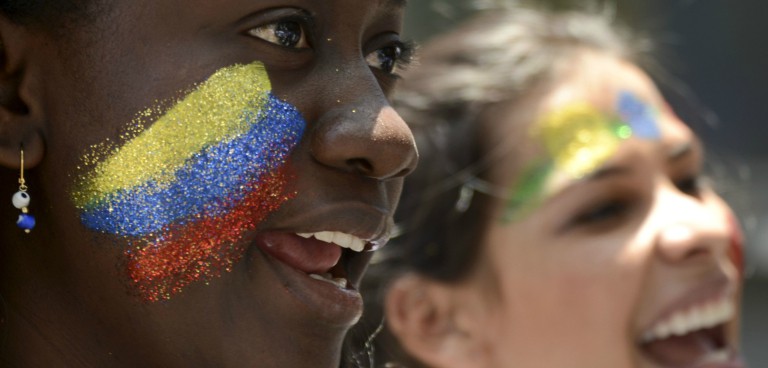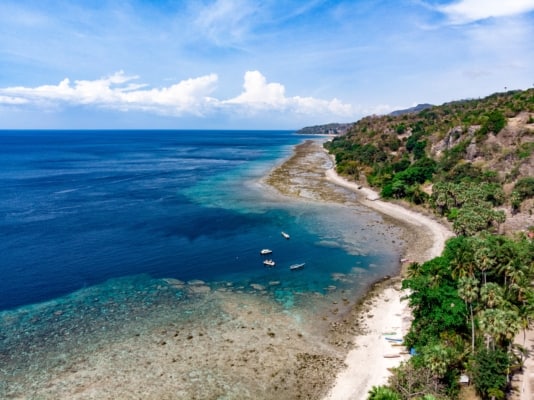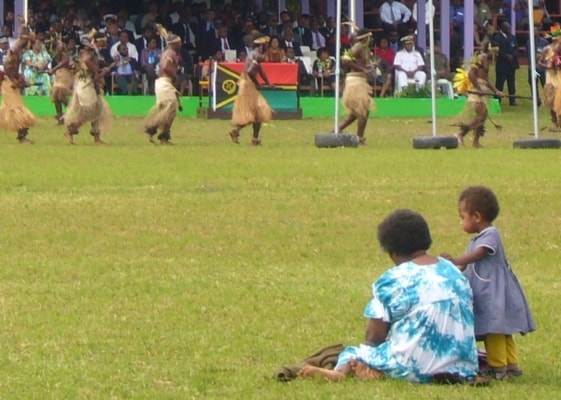Image: Colombian women attend “The March for Life” in Medellin, Colombia, on International Women’s Day on March 8, 2015. RAUL ARBOLEDA/AFP/Getty Images.
Article in Foreign Policy.
Colombia’s President Juan Manual Santos and the leader of the Fuerzas Armadas Revolucionarias de Colombia (FARC), the country’s largest insurgent group, have given the latest round of peace talks in Havana a much-needed boost, committing to sign a deal within six months.
Colombia’s armed insurgency, which spans five decades and is the longest standing conflict in Latin America, is rooted in entrenched patterns of inequality, discrimination and exclusion. A peaceful resolution has remained elusive. But, far from the spotlight, there is another story that deserves closer attention: despite being disproportionally affected by the conflict, Colombian women have made remarkable strides towards empowerment.
As most violent conflicts do, the Colombian conflict has affected women in distinct and horrifying ways. In particular, sexual violence has been used as a tool of terror and control, widely employed by guerrillas, paramilitaries, and state forces alike. Perpetrators have only rarely been brought to justice, protected by a culture of silence and impunity.
And yet the conflict has also been the source of a profound transformation: Colombian women have gone from viewing themselves as victims to affirming their rights as citizens. This remarkable story is detailed in “Progress Despite Adversity,” the latest Development Progress case study we published with a colleague, Verónica Hinestroza.
Take, for example, the experience of María Eugenia Cruz Alarcón, founder of Mujer, Sigue mis Pasos (“Woman, Follow My Steps”), an organization that raises awareness of violence against women. As she explained, it was the discrimination and abuse she faced as a displaced woman with young children that turned her into the prominent activist for women’s rights she is today: “I realized we had to become organized as women in order to stop being mistreated, and that we needed to change our vision and expectations of the state from an emphasis on ‘handouts’ to demanding the protection and realization of our rights.”
Jineth Bedoya Lima, a prominent journalist of El Tiempo, the leading Colombian newspaper, explained why she decided to go public as a survivor of conflict-related sexual violence. She spent nine years in silence because she felt ashamed and “had no interest in being a victim in public.” But eventually she changed her mind: “I had met so many women who had experiences similar to mine, yet the state would not recognize these crimes. No one wanted to even talk about it.” Empowered by the process, she is now a leading advocate for women’s rights, and has given voice to thousands who have endured grave injustice.
These are inspiring examples of transformation despite the odds. Colombian women have shed light on the extent to which women and girls have borne the brunt of the conflict and have opened up a broader conversation on how to approach post-conflict truth and accountability in a way that’s sensitive to women’s experiences. They have done this through critical and strategic engagement with a variety of institutions, both in the formal political system and in civil society. In this way, they have been able to ensure that the way Colombia responds to conflict reflects the experience and unique challenges faced by women.
Colombia’s Constitutional Court, established under the 1991 constitution, has proven a key ally. Women’s groups have used the court — which is both remarkably progressive and one of the most highly regarded institutions in the country — to advance women’s rights on issues ranging from decriminalizing abortion to addressing the needs of women displaced from their homes to calling for reparations for the conflict’s female victims. The court has recognized and promoted the idea that violence generated by the conflict affects women in particular ways precisely because of their gender.
Women’s groups have also collaborated with the Congressional Women’s Committee in Colombia’s parliament to push through concrete changes in law and policy across a range of gender issues. First established in 2006, the Committee has played a crucial role by enabling women to transcend party lines and work with both independent activists and legislators on areas of common interest. Perhaps most prominently, the Committee spearheaded a 2008 law which recognizes conflict-related sexual violence as a distinct crime and increases sentencing for violence and discrimination against women. As one of the leading (female) senators who sponsored the law told us, this landmark legislation was opposed by many entrenched interests and could never have been enacted without the active collaboration of the congressional committee and women’s organizations. Women’s groups have also made important contributions to the text of the Victims and Land Restitution Law of 2011, which, unlike previous reconciliation laws, establishes mechanisms for truth-telling and reparations that are substantively based on women’s experiences of conflict.
And of course, since the latest negotiations between the Colombian government and the FARC were announced in 2012, women’s organizations have pushed to be included in the peace process. Tellingly, the original government delegation did not include a single woman (though the FARC delegation did). However, recognizing that this process presented a historic opportunity to confront structural inequalities, Colombian and international women’s organizations worked together to demand the greater incorporation of women and gender issues into the peace agenda. As Marina Gallego, coordinator of the grassroots organization Ruta Pacífica de las Mujeres (Women’s Route to Peace), has explained, women don’t want peace to be made for them, but to be the peacemakers themselves.
As a result of this pressure, President Santos appointed two women with greater decision-making power into the government’s negotiation team. This is still far from enough, but at times, one-third of delegates in Havana have been women, which is above global averages. A dedicated gender subcommission has also been created with a mandate to ensure a gender perspective and women’s rights are included in all agreements. Over 60 survivors, mostly women, have been invited to share their experiences and expectations with the peace delegations in Havana. This is especially significant because, according to UN Women, these encounters between peace negotiators and conflict survivors, especially women, are almost without precedent in the field of conflict resolution.
Clearly, much remains to be done. As elsewhere, progress in women’s empowerment in Colombia has been uneven and there is a persistent chasm between the legislation and its implementation. Existing research also shows that well-educated and urban women have gained most from the changes that have been achieved. Women in rural areas, often poor and illiterate, continue to lag behind, facing much higher levels of gender-based violence, discrimination, and displacement. Ethnicity is intimately linked with poverty and exclusion, and indigenous and Afro-Colombian women tend to be disproportionately vulnerable.
Ultimately, the challenges of gender inequality and discrimination faced by women in Colombia cannot be dissociated from the country’s wider problems. But it’s clear that whatever direction the current peace talks take, Colombian women will not go quietly. They will continue to make their voices heard and demand that their rights are met — and will never again be relegated to the role of passive subjects of their country’s history.









